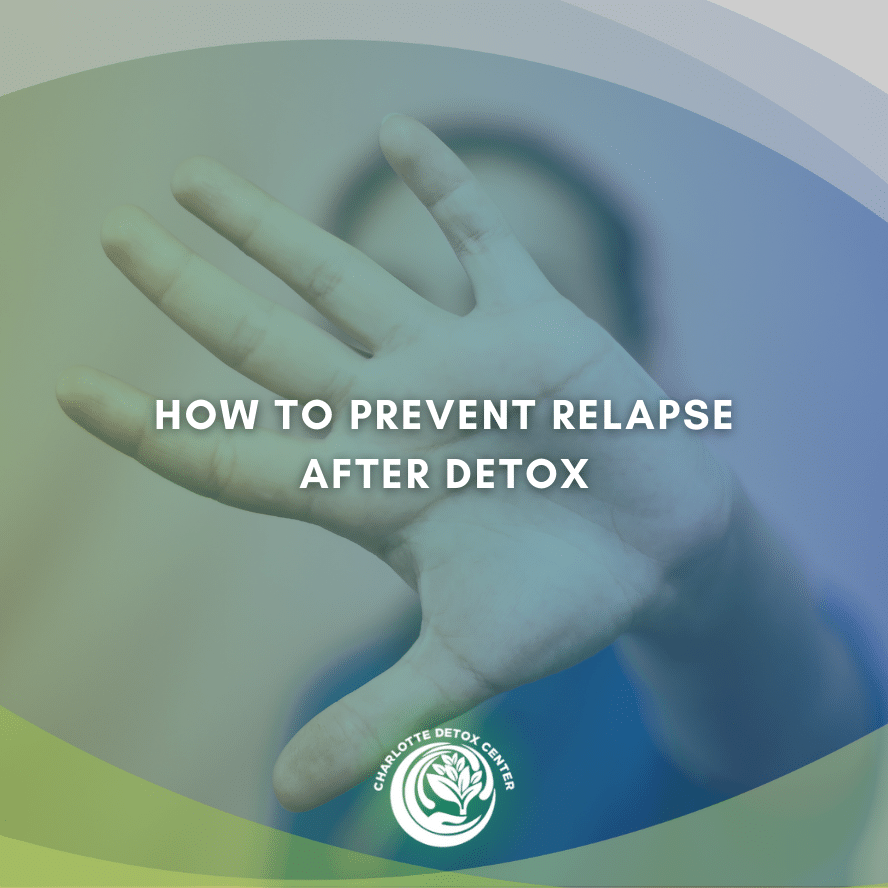How to Prevent Relapse After Detox

Medically Verified: 2/1/24
Medical Reviewer
Chief Editor

All of the information on this page has been reviewed and verified by a certified addiction professional.
Millions of people in the United States struggle with addiction to drugs or alcohol. The effects of addiction can become severe if people do not get the care, support, and treatment they need to overcome it. Without getting treatment, people are at risk of serious harm to their physical and emotional health. They may lose important relationships, suffer financial hardships, and face legal trouble.
While many people live with addiction, no two people have the same experience. Because of this, addiction treatment must be comprehensive and flexible so that each person can get the support they need.
This is true in life after detox. Addiction is never truly cured. Instead, people must find ways to prevent relapse after detox and stay committed to sobriety for life.
A relapse–using drugs after a period of sobriety– can happen at any point in recovery. It can happen for a variety of reasons: strong emotions, being unprepared, a lack of support, and even boredom.
Knowing some of the common causes of relapse and preparing for them can mean a better chance at real, lifelong recovery. Here is how you can prevent relapse after detox.
Identify Causes of Relapse
The journey through recovery does not often follow a straight path. Most people in recovery from addiction have at least one relapse. In order to prevent relapse, you must be able to identify the various causes of it. There are some common causes at the heart of many relapses, such as:
Detox Only
Addiction is a complex, whole-self condition. While detoxification is a necessary first step, it is important to participate in other forms of addiction treatment, such as therapy, medications, and group support, after detox is complete. Detox just prepares you for rehab.
Untreated Mental Illness
Mental health issues can interfere with progress in recovery. Many people use drugs and alcohol to self-medicate the uncomfortable symptoms of mental illness.
No Support
Having ongoing professional and social support can be the difference between avoiding relapse and failing to.
Unrealistic Expectations
Some people leave detox with the expectation that their whole life will be different. They may be unprepared for the reality that their problems, relationships, and responsibilities haven’t changed just because they have.
If you do have a relapse, you can use that experience to learn more about what you need to prevent another.
Steps to Take to Prevent Relapse After Detox
There are some things you can do to make it less likely that you will relapse. While every person has different experiences, being aware of common causes of relapse and being proactive in preventing it can help you stay on the right path.
- Continue to take your prescribed medications: Continue to see your medical and mental health professionals regularly and follow their guidance about what medications to take.
- Increase your social support: Spend time with friends in recovery, connect with supportive friends and family, and make sure you have at least one person you can call when you need a non-judgmental ear.
- Stay busy: Boredom can lead to a lapse in judgment or commitment. Find healthy ways to stay occupied. This may include exercise, work, old or new hobbies, and volunteer work. You should also make plenty of time for your recovery-related activities such as appointments, support groups, and therapy.
- Avoid triggers: Knowing the people, places, and situations that are most likely to lead you toward relapse can help you stay focused in recovery.
- Make a new start: Get rid of items related to your substance abuse. Delete the phone numbers related to your drug use. If possible, move to a new part of town or a new place altogether.
Identifying the people, places, and things that might trigger you to relapse can be one of the most important things you do in recovery.
Identify Triggers to Help Prevent Relapse After Detox
Take some time to think about when you were the most likely to use drugs or alcohol. Who were you with? How did you feel? What special dates, times, or occasions are associated with drinking or using drugs?
Many people are triggered by strong emotions. They may face a setback at work, relationship strain, or just daily frustration and start using drugs or alcohol to numb the discomfort of their feelings. Be aware of anxiety, depression, anger, frustration, sadness, and boredom. While you can’t avoid your feelings, you can make a plan to deal with them in a healthy way.
Make a plan for how you will handle special times of the day or certain dates. If you used to go out for happy hour after work, make a plan to do something else instead. If the holidays trigger you, decide ahead of time how you will cope with these feelings–or choose not to attend celebrations. If certain people in your life are triggering, avoid them as much as possible.
After detox, it is important to participate in a comprehensive addiction program where you can learn the skills you need to manage stress and learn ways to prevent relapse after detox.
Learn More About How to Prevent Relapse at Charlotte North Carolina Detox
If you or someone you love requires a detox program, reach out to Charlotte North Carolina Detox. We offer high-quality detox services that will give you a fresh start. Call now to learn more about how we can help you start your journey in recovery from addiction.
